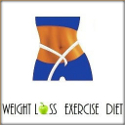-
Get Slim Now! Nutrition Zone for Weight Loss
Saturday, March 29th, 2025by Sally Rogers, Dietitian
Looking for a new way to get slim? There are tons of exercise programs and diet plans out there to help you get fit and lose weight. But some people say the “nutrition zone” approach is the ideal way to reach your weight loss goals. So what’s it all about?
 Many doctors and nutrition experts recommend this new method for creating a healthier and stronger body. The nutrition zone approach gives you the recommended daily allowances of vitamins and minerals your body requires. By restoring your body’s hormonal balance, you will lose weight naturally and hopefully keep it off for good.
Many doctors and nutrition experts recommend this new method for creating a healthier and stronger body. The nutrition zone approach gives you the recommended daily allowances of vitamins and minerals your body requires. By restoring your body’s hormonal balance, you will lose weight naturally and hopefully keep it off for good.The Nutrition Zone Diet
This new diet plan is based on eating forty percent carbohydrates, thirty percent protein and thirty percent fat. The nutrition zone weight loss plan may also help to avoid certain chronic ailments such as high blood pressure, heart disease and diabetes.
The nutrition zone eating plan limits fat to 30 percent of calories consumed, with the majority of this being unsaturated fat (as opposed to saturated fat). Good sources of unsaturated fat are avocados, canola oil, and macadamia nuts, to mention a few.
Consuming fats that are unsaturated supports a healthy heart and helps keep your blood pressure in the normal range. Conversely, eating saturated fat has the opposite effect because of its high cholesterol content.
Eat Foods High in Fiber
Protein accounts for 30 percent of the zone nutrition plan, and serves as a mechanism to prevent overeating. This is due to protein taking longer to digest and thus delaying gastric emptying. As a result, the person on this diet feels satisfied longer and therefore eats less.
Carbohydrates constitute 40 percent of this diet regimen, with an emphasis on those carbs that are high in fiber. Vegetables like beans, lentils and potatoes, and whole grains like breads, pastas and cereals should be avoided. This is because they are too-easily absorbed by the body and can cause a rapid release of hormones into the bloodstream.
Controlling one’s intake of complex carbohydrates and protein serves to effect a good hormonal response in the body. Reduction of complex carbohydrates helps to maintain the body’s insulin levels in a normal range. The amount of protein consumed is increased in the nutrition zone diet plan in order to create a feeling of fullness.
Hormone Response for Weight Loss
This natural weight loss plan that works is based on hormonal response, rather than simply counting calories. The goal is to reach a certain weight, instead of just focusing on fat reduction. There is no need for diet supplements with this plan.
The goal is for women to reach 22 percent body fat, while men should try for around 15 percent. The protein amounts required with the nutrition zone diet are dictated by an individual’s height and weight, hip and waist measurements, as well as how much exercise they get while on the plan.
You can feel better and lose weight with nutrition zone dieting. In many ways it is safer and more effective than other diet plans like melatonin for weight loss that promise fast weight loss. Now is the time to get started on your healthy nutrition zone diet and watch the pounds melt away!
Weight Loss Supplements: Do They Work?
Taking off those extra pounds can do wonders for your emotional and physical health, but it won’t happen overnight. Some people seek a shortcut to weight loss by taking diet supplements.
There are a wide variety of these products on the market that claim to decrease appetite, block fat absorption, or boost metabolism. The truth is that most weight loss experts do not recommend taking weight loss supplements, because most of them don’t work as advertised.
All is not lost, however. There are proven weight loss supplements available. Here are a few weight loss products that have shown some success:
- Conjugated linoleic acid (CLA) is a fatty acid that occurs naturally in small amounts in meat and dairy products. Research has shown that CLA diet supplements may help the body to shed fat and increase its lean body mass. However, studies have also shown some worrisome side effects, so talk with your doctor before taking CLA.
- Research has also shown that overweight and obese people who take a daily fiber supplement report less hunger after meals than people taking a placebo. Furthermore, overweight individuals who take a fiber supplement tend to lose more weight over time.
- A recent study found that taking green tea extract helped obese men and women lose weight and lower their body mass index ((BMI). Green tea supplements also helps reduce the buildup of dangerous belly fat, which is related to an increased mortality rate.
- Often the best weight loss supplements are meal replacement bars and shakes. Eating a low-calorie meal replacement bar or drinking a shake for breakfast and lunch, allows the dieter to then enjoy a portion-controlled dinner of around 500 calories. This has been shown to be a very effective weight loss routine.
It goes without saying that you should always consult with a physician before beginning any type of supplement. Certain diet supplements can have side effects that may react with medications you also may be taking.
Most importantly, remember that when it comes to losing weight, there are no shortcuts. Proper nutrition, a balanced diet and regular physical exercise are the keys to losing those unwanted pounds – and keeping them off for good.
(published August 6, 2011)


